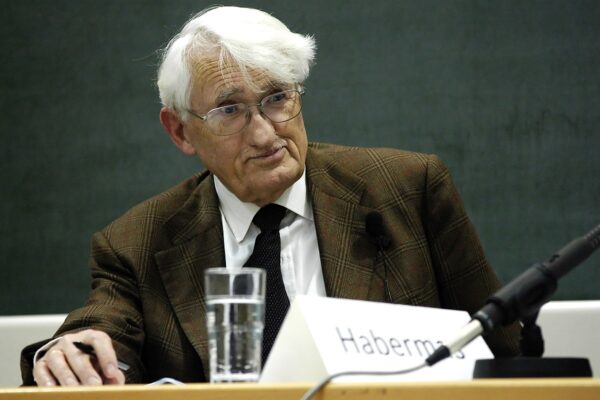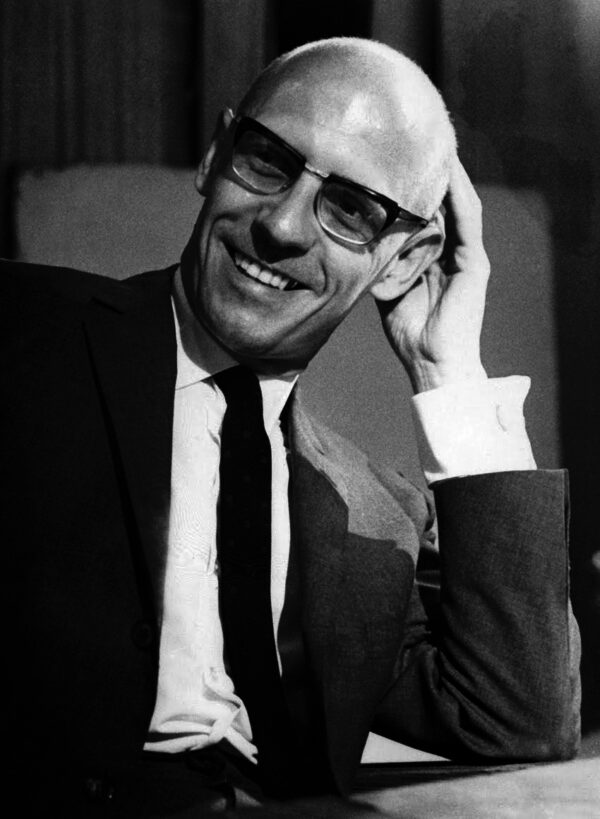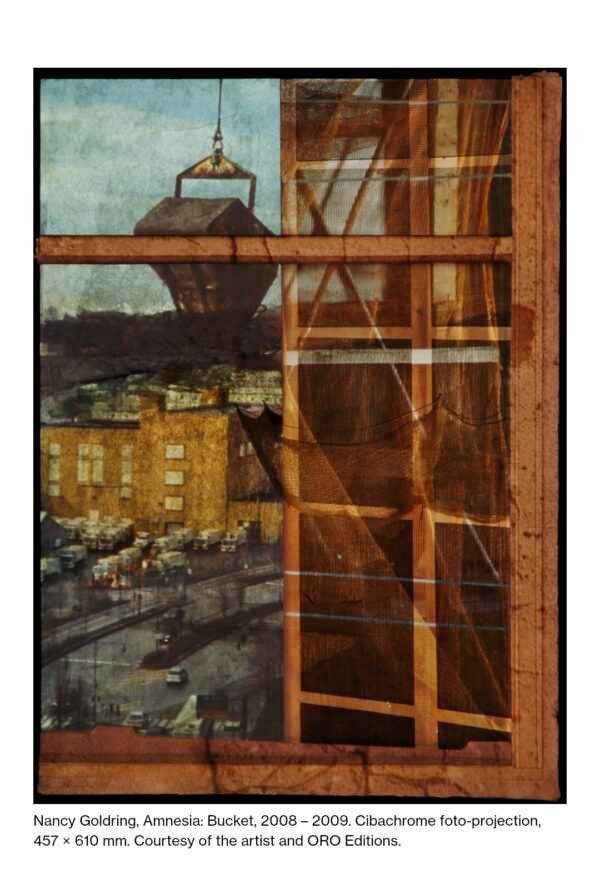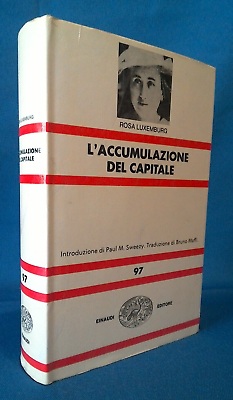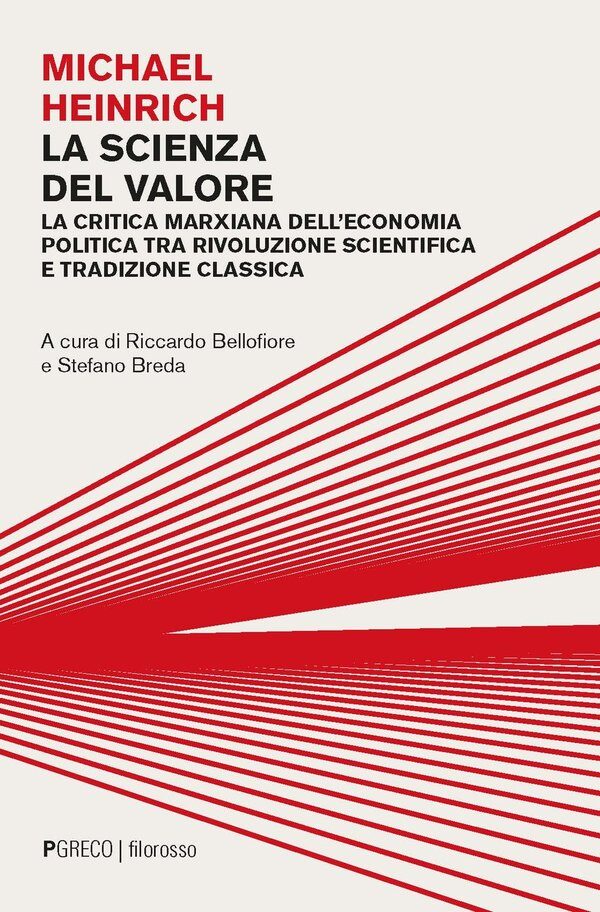Pagine
Iscriviti alla Newsletter
 invio in corso...
invio in corso...Condividi e segnala
Tag
- Althusser
- Antropologia
- Baumgarten
- Bourdieu
- Conceivability of Nothingness
- Conciliation
- corpo
- Derrida
- Dialectics
- Difference
- distinzione
- Europe
- Expression
- giudizio
- Grace
- Habitus
- Heidegger
- Hobbes
- Kant
- linguaggio
- Lyotard
- marxismo
- Medieval Aristotelianism
- Metaphysics
- Nature
- Negative
- Nichts
- nihil
- Nihilism
- nihil negativum
- nihil privativum
- Non-identical
- Nothing
- Nothingness
- onore
- politica
- postmoderno
- pratica
- riconoscimento
- Smith
- solitudine
- Sovranità
- Spinoza
- Thomas Aquinas
- Western Ontology
-
Articoli recenti
Link
Archivi categoria: NUMERO 15
Indice
Introduzione
Roberto Finelli
Università degli Studi di Roma Tre (roberto.finelli@uniroma3.it)
Pubblicato in Monografica, NUMERO 15
Commenti disabilitati su Introduzione
Linguaggio e intersoggettività. Dalla Fenomenologia dello spirito alla Diskursethik habermasiana
Carlo Crosato
Università degli Studi di Bergamo (carlo.crosato@unibg.it; ORCID: 0000-0002-0439- 3249).
Language and Intersubjectivity: From the Phenomenology of Spirit to Habermas’ Diskursethik
Abstract: In this paper I aim to trace an itinerary through Hegelian Phenomenology to Jürgen Habermas’ Diskurethik. Hegel lays the groundwork for placing relationality at the origin of self-consciousness and addresses the problem of plurality of perspectives on the world, seeking a solution in the linguistic medium. Habermas draws on Hegel’s thought, identifying a structural ethicality underlying our communication.
Keywords: Language; Intersubjectivity; Diskursethik; Hegel; Habermas. … Continua a leggere
Pubblicato in Monografica, NUMERO 15
Commenti disabilitati su Linguaggio e intersoggettività. Dalla Fenomenologia dello spirito alla Diskursethik habermasiana
Quale soggetto in Hume?
Paolo Castaldo
Università degli Studi di Salerno (paolocastaldo88@gmail.com; ORCID: 0000-0003- 2442-0942).
Which Subject in Hume?
Abstract: In Hume’s scholarship the notion of “subject” lacks systematic analysis. First, because it is often confused with words such as “self ”, “soul” or “person”, which repeatedly occur in the Treatise. Another reason is that the subject is almost always reduced to the famous question of personal identity. In this paper I argue that, on the one hand, the concept of subject has to be distinguished from that of “self ” or “person”, and from the question of personal … Continua a leggere
Pubblicato in Monografica, NUMERO 15
Commenti disabilitati su Quale soggetto in Hume?
Non siamo mai stati coevi. Per una storicizzazione della soggettività intraspecifica dell’ontological turn
Giulia Marotta
Università di Bologna (giuliamaria.marotta@studio.unibo.it; ORCID: 0009-0006- 5356-5592).
We Have Never Been Contemporary: For a Historicization of the Intraspecific Subjectivity of the Ontological Turn
Abstract: Analysing the ontological turn’s fundamentals, this paper aims at highlighting inherent contradictions within this theoretical framework, particularly concerning the denial of coevity between an ‘us’ and a ‘them’, imposed by Viveiros de Castro. The Brazilian anthropologist advocates for a methodological revolution in ethnography, achievable through the metamorphosis across different prospectives-ontologies: only by fully embodying the Other, entering their worlds and destroying our own initial subjectivity – and thus … Continua a leggere
Pubblicato in Monografica, NUMERO 15
Commenti disabilitati su Non siamo mai stati coevi. Per una storicizzazione della soggettività intraspecifica dell’ontological turn
L’uso dell’evento. Trasformazioni dell’idea di storicità nell’opera di Michel Foucault (1966-1971)
Francesco Marchesi
Università di Pisa (francesco.marchesi1@gmail.com; ORCID: 0000-0003-3847-9574).
The Use of Event: Transformation of the Idea of History in Michel Foucault (1966-1971)
Abstract: Between 1966 and 1971 Michel Foucault’s philosophy moves from the paradigm of archaeology, present in his well-known work as Les mots et les choses and L’archéologie du savoir, to that of genealogy, influenced by authors like Nietzsche and Deleuze. The problem of historical knowledge stands at the center of this transformation. This essay tries to account this shift in Foucault’s philosophy from the point of view of the event: from … Continua a leggere
Pubblicato in Monografica, NUMERO 15
Commenti disabilitati su L’uso dell’evento. Trasformazioni dell’idea di storicità nell’opera di Michel Foucault (1966-1971)
Storia, scienza e materialismo. Ripensando Franz Borkenau
Andrea Cengia e Massimiliano Tomba
Andrea Cengia – Università degli studi di Padova (andrea.cengia@unipd.it; ORCID: 0000-0002-8992-3244); Massimiliano Tomba – University of California, Santa Cruz (mtomba@ucsc.edu; ORCID: 0000-0003-4116-061x).
History, Science, and Materialism: Rethinking Franz Borkenau
Abstract: This article offers a self-reflexive exploration of materialist critique, building upon the groundwork laid by Franz Borkenau in the realms of scientific innovation, technological evolution, and the corresponding formation of worldviews. Drawing from the theoretical frameworks of Marx and Borkenau, this study examines how specific worldviews emerge through the modification of daily experiences mediated by technology. Central to this investigation … Continua a leggere
Pubblicato in Monografica, NUMERO 15
Commenti disabilitati su Storia, scienza e materialismo. Ripensando Franz Borkenau
Metabolismo ed ecologia. La frattura del ricambio materiale dall’ecomarxismo a Marx
Paolo Murrone
Università di Pisa (paolo.murrone@phd.unipi.it; ORCID: 0000-0001-8333-9453).
Ecology and Metabolism:The Metabolic Rift from Eco-Marxism to Marx
Abstract: In this essay, I will focus on some essential assumptions of the so-called metabolic rift theory, which sought to understand the Marxian concept of Stoffwechsel from an ecological perspective. In the first part, I will focus on the genesis of this Marxist current of ecology, dwelling in particular on the issue of Marx’s alleged productivism. Subsequently, I will shed some light on the Marxian notion of metabolism, attempting (a) to situate the concept within the … Continua a leggere
Pubblicato in Monografica, NUMERO 15
Commenti disabilitati su Metabolismo ed ecologia. La frattura del ricambio materiale dall’ecomarxismo a Marx
Il rapporto tra natura non umana e accumulazione capitalistica. Una riflessione critica a partire dalla teoria di Nancy Fraser
Agostino D’Amico e Enrico Sacco
Agostino D’Amico, Università degli Studi di Bari Aldo Moro (agostino.damico@uniba. it; ORCID: 0009-0004-0864-3614); Enrico Sacco, Università degli Studi di Napoli Federico II (enrico.sacco@unina.it; ORCID: 0000-0002-4699-7040).
The Relationship Between Non-human Nature and Capitalist Accumulation: A Critical Reflection On Nancy Fraser’s Theory
Abstract: The article problematizes some conceptual dimensions of Nancy Fraser’s critical theory. Among them, the conception of the capitalist model as an institutionalized social order, the attempt to build a theoretical framework capable of bringing to light the areas of interdependence between economic and non-economic factors, and the periodic … Continua a leggere
Pubblicato in Monografica, NUMERO 15
Commenti disabilitati su Il rapporto tra natura non umana e accumulazione capitalistica. Una riflessione critica a partire dalla teoria di Nancy Fraser
Il contributo filosofico di Lenin nella critica gramsciana della Storia d’Europa di Croce
Camilla Sclocco
Ecole Normale Supérieure de Lyon, Triangle/LabEx Comod (camilla.sclocco@ens-lyon.fr; ORCID: 0009-0001-0506-0921). Ringrazio Maria Luisa Righi e Giuseppe Cospito per aver letto l’ultima versione del lavoro e per i generosi consigli; i revisori anonimi della rivista per i pertinenti suggerimenti).
The Philosophical Contribution of Lenin in Gramsci’s Critique of Croce’s History of Europe
Abstract: Through the instruments of new Gramscian philology, this article reconstructs the philosophical and political relevance of the judgement of Lenin as “the greatest modern theorist of philosophy of praxis” within Gramsci’s critique of Croce’s History of Europe. To this aim, … Continua a leggere
Catilina ‘nazionale’ con gli occhi di Gramsci. Brevi appunti su una figura non marginale della storia repubblicana romana
Leonardo Masone
Università degli studi di Bari “Aldo Moro” (leonardo.masone@uniba.it; ORCID: 0009- 0007-4792-1009).
Catiline Through the Eyes of Gramsci: Brief Notes On a Non-marginal Figure of the Roman Republican History
Abstract: Each page of Gramsci’s work delivers a space for reflection that is never dogmatic. Gramsci reconstructs the long process of formation of the Italian national story, advancing with a theory of the nation that presents original traits with respect to the better known 19th and early 20th century doctrinal elaborations. Theory that places its foundations in ancient history. In the following pages, we … Continua a leggere
Eleonora Piromalli, L’alienazione sociale oggi. Una prospettiva teorico-critica (Carocci 2023)
Pubblicato in NUMERO 15, Recensioni e segnalazioni
Commenti disabilitati su Eleonora Piromalli, L’alienazione sociale oggi. Una prospettiva teorico-critica (Carocci 2023)
Michael Heinrich, La scienza del valore. La critica marxiana dell’economia politica tra rivoluzione scientifica e tradizione classica (Pgreco Edizioni, 2023)
Pubblicato in NUMERO 15, Recensioni e segnalazioni
Commenti disabilitati su Michael Heinrich, La scienza del valore. La critica marxiana dell’economia politica tra rivoluzione scientifica e tradizione classica (Pgreco Edizioni, 2023)
Paolo Bellinazzi, Cur Deus Homo? Le origini metafisiche del materialismo storico e dialettico (Affinità elettive 2023)
Pubblicato in NUMERO 15, Recensioni e segnalazioni
Commenti disabilitati su Paolo Bellinazzi, Cur Deus Homo? Le origini metafisiche del materialismo storico e dialettico (Affinità elettive 2023)


